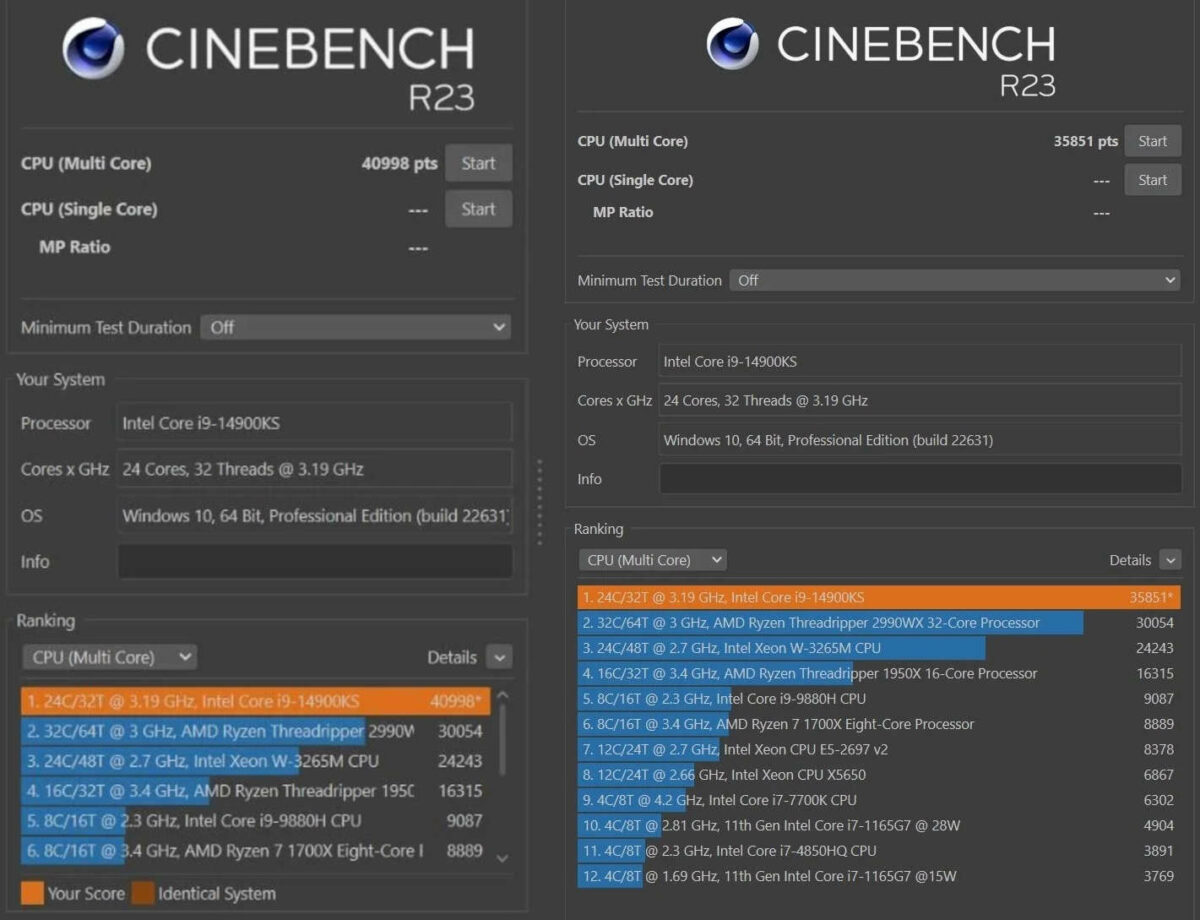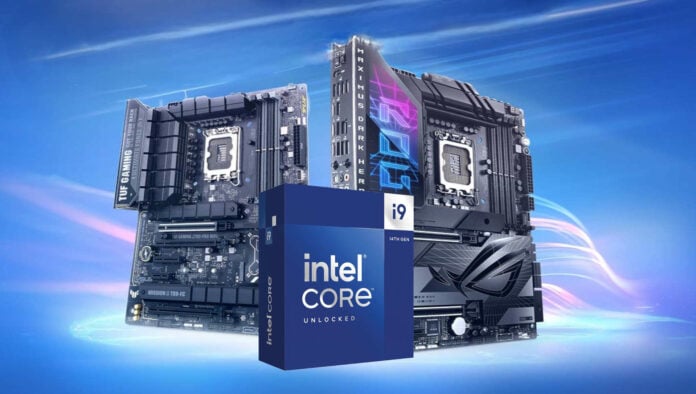Asus has released a Z790 motherboard BIOS update that introduces the Intel Baseline Profile in an attempt to improve stability. This option allows users to revert to Intel factory settings with lower power limits.
Due to the recent uptick in complaints regarding crashes and overall instability with Intel’s high-end K-series CPUs, Asus has released a new BIOS update that changes some default power settings. Previously, motherboard vendors could provide unlocked Intel processors with as much power as they wanted. This resulted in extreme temperatures, exceeding the safety limits and causing throttling even with some liquid coolers.
Following this firmware update, users can select a new profile that changes a couple of options. First, it switches Asus’ MultiCore Enhancement off to enforce all limits. Then, it sets SVID Behavior to Intel’s Fail Safe. Finally, it enables IA/SA current excursion protections. Unsurprisingly, these changes negatively affect CPU performance, as the first Cinebench tests show a 12.6% performance decrease.

Before the issues arose, Intel certainly benefitted from the unlocked approach. Our performance per watts comparison showed Core i9-13900K went from a tight first spot to a distant second against Ryzen 9 7950X at 125W. Without limits, Intel keeps its top spot for that generation. With them, it slips down a peg or two. Fortunately, our tests show Intel still has an efficient chip, delivering performance on par with Ryzen 9 7950X at 65W. The same goes for single-core tasks where both CPUs don’t lose much frequency thanks to the available power headroom.
Things become even more interesting when gaming, with both Intel and AMD CPUs delivering similar performance regardless of the power target, albeit with slightly lower minimums. So for gamers, it seems that the default choice should be a 125W or even 65W power limit, which reduces consumption by up 2.5x from 333W to 130W on the Core i9-13900K. The first thing I did on my Ryzen 5 7600X is set it to Eco Mode and forget about it.
Even if some users may not like this change, I believe it’s the right choice. We need to go back to the old way of releasing products, where Intel was known for its superbly stable and durable products. Meanwhile, those who like to tinker and push their hardware to the max will have more room to overclock. A win-win situation.


